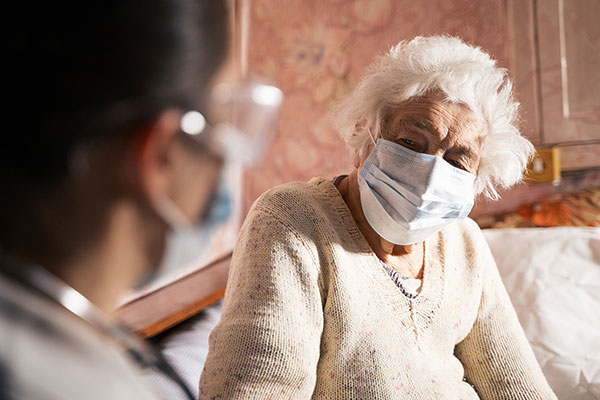Re-entering the Aging Life Care Workplace Post-Covid-19 Lockdown

During this historic time of tumultuous upheaval first with the COVID-19 pandemic and now with the unfolding civil protests for social justice and equality, aging life care professionals have been a rock of dependability and a beacon of light for our most vulnerable seniors and their families.
With the curve flattening on the pandemic in many states and governors initiating return-to-work guidelines, I wanted to share with you some of my thoughts on easing back into the in-person visit nature of our work as care managers.
When considering re-entry, I think it is prudent first to assess the environment we are returning to. While the curve has flattened and the crush on emergency services and hospital beds has diminished, the virus has not gone away. Indeed, we may see a spike in new cases in the next few weeks with the easing of social distancing over the Memorial Day holiday and the mass protest gatherings as of late. Our infectious disease leaders are also preparing us to anticipate hot spot outbreaks and a second wave of the virus later in the fall. So much is still unknown about this virus, including whether having antibodies will definitively protect against further infections.
Our clients, whose average age is 90, remain the most vulnerable to the virus, and we need to keep that front and center of our decisions. Some care managers have already started returning to in-person visits based on the client’s need, family request and their own comfort levels. Others are waiting to assess the effects of the relaxing of lockdown restrictions.
To that end, returning to in-person visits is a decision that each care manager will make with the client and their families. If there is mutual agreement that an in-person care management visit would be beneficial for the client to advance specific health and wellness outcomes, then the care manager and client and/or family/ designated health care proxy should discuss the conditions of the visit. In my opinion, the care manager should wear personal protective equipment (PPE), including a KN95 mask or higher grade if available, and should hand sanitize frequently during the visit.
Some clients and families may wish that the care manager be COVID-19 and/or antibody tested prior to returning to in-person visits. While this is understandable and can relieve anxiety and add clarity to that moment in time, it may also provide a false sense of security. If you are COVID-19 negative today it does not mean you will be COVID-19 negative tomorrow or next week. Also, with current antibody testing a 25% false positive rate has been reported. Unless the specificity of this test is greatly improved, having a positive antibody test may lull one into thinking one is immune when that may not be the case.
Amid all this uncertainty, the tried and true, whatever about testing, is to keep up the social distancing measures in your homes and communities. If you’re visiting an elderly client, ensure that you are feeling well, are afebrile with no cough or other COVID-19 symptoms and are wearing appropriate PPE. Document the measures you and your clients have agreed to for the visit. For my practice, this will be the new normal until a vaccine is widely available.
Regarding ongoing care management, we must continue to stay informed and keep our communications clear and our practices aligned with the best scientific information available. Our important work continues for all our elders and their families, whether virtually, in-person or in a hybrid model. Stay well and stay strong – we are truly better together!
Written by Anne Sansevero
![HealthSense [logo]](https://www.health-sense.org/wp-content/uploads/sites/242/2017/02/logoNEW.png)